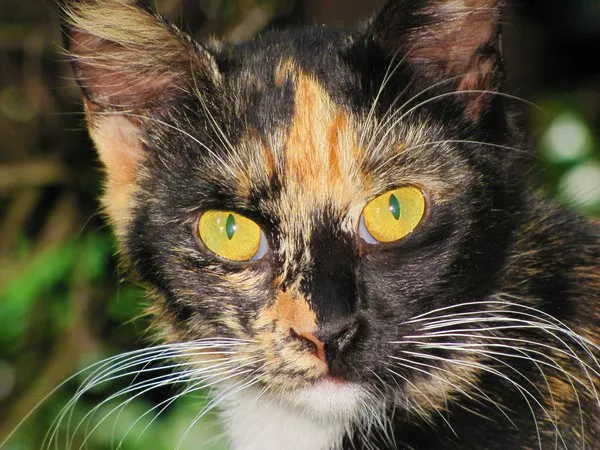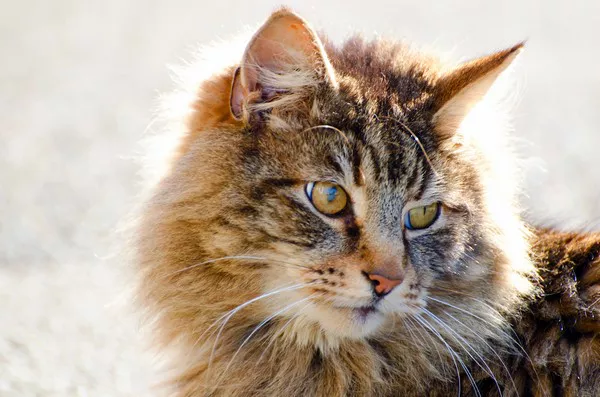The American Shorthair cat is a beloved breed known for its friendly demeanor, adaptable nature, and distinctive appearance. As with any cat, proper nutrition and weight management are crucial for ensuring the health and well-being of American Shorthair kittens as they grow and develop. In this comprehensive article, we’ll explore weight guidelines for 6-month-old American Shorthair kittens, discuss factors that can influence their weight, and provide feeding tips to help owners ensure their kittens receive the nutrition they need to thrive.
Understanding American Shorthair Growth
Like all kittens, American Shorthairs undergo rapid growth and development during their first few months of life. By the time they reach 6 months of age, they have typically transitioned from nursing to eating solid food and have begun to establish their adult size and weight. While individual growth rates can vary, there are general guidelines that can help owners monitor their kitten’s progress and ensure they are growing at a healthy pace.
Weight Guidelines for 6-Month-Old American Shorthair Kittens
At 6 months of age, American Shorthair kittens are typically well on their way to reaching their adult size and weight. While individual variation is to be expected, the following weight range is considered normal for 6-month-old American Shorthair kittens:
Male American Shorthair kittens: 6 to 9 pounds (2.7 to 4.1 kilograms)
Female American Shorthair kittens: 5 to 8 pounds (2.3 to 3.6 kilograms)
It’s important to keep in mind that these are general guidelines, and factors such as genetics, diet, and activity level can influence a kitten’s growth and weight. Additionally, kittens may experience growth spurts at different times, so fluctuations in weight are normal as long as they fall within a healthy range.
Feeding Tips for 6-Month-Old American Shorthair Kittens
Proper nutrition is essential for supporting the growth and development of 6-month-old American Shorthair kittens. Here are some feeding tips to help ensure your kitten receives the nutrients they need:
Choose a High-Quality Kitten Food: Select a high-quality kitten food that is specifically formulated to meet the nutritional needs of growing kittens. Look for foods that are rich in protein, vitamins, and minerals, and avoid foods that contain artificial additives, fillers, or by-products.
Follow Feeding Guidelines: Pay attention to the feeding guidelines provided on the kitten food packaging, and feed your kitten the appropriate amount based on their age, weight, and activity level. Avoid overfeeding, as excess calories can lead to weight gain and other health issues.
Provide Frequent, Small Meals: Offer your kitten frequent, small meals throughout the day to support their energy needs and prevent overeating. Divide their daily portion of food into several smaller meals spaced evenly throughout the day, and monitor their appetite and weight to ensure they are receiving an adequate amount of food.
Monitor Weight and Growth: Keep track of your kitten’s weight and growth progress by weighing them regularly and comparing their weight to the expected range for their age and breed. Consult with your veterinarian if you have any concerns about your kitten’s growth or weight gain.
Provide Fresh Water: Make sure your kitten has access to fresh, clean water at all times to stay hydrated and support their overall health and well-being. Consider using a shallow, wide water bowl that is easy for your kitten to access and clean the bowl regularly to prevent bacteria buildup.
Avoid Table Scraps and Treats: Resist the temptation to feed your kitten table scraps or excessive treats, as these can contribute to weight gain and nutritional imbalances. Stick to a balanced diet of high-quality kitten food to ensure your kitten receives the nutrients they need without excess calories.
Monitor for Allergies or Sensitivities: Keep an eye out for any signs of food allergies or sensitivities in your kitten, such as vomiting, diarrhea, or skin irritations. If you suspect your kitten is reacting negatively to their food, consult with your veterinarian to determine the best course of action.
Conclusion: Nurturing Healthy Growth in American Shorthair Kittens
Ensuring proper nutrition and weight management is essential for promoting healthy growth and development in 6-month-old American Shorthair kittens. By following feeding guidelines, choosing high-quality kitten food, and monitoring your kitten’s weight and growth progress, you can help set them on the path to a happy, healthy adulthood. Remember to consult with your veterinarian for personalized feeding recommendations and advice tailored to your kitten’s specific needs and requirements. With proper care and attention, your American Shorthair kitten will thrive and bring joy to your home for years to come.




















